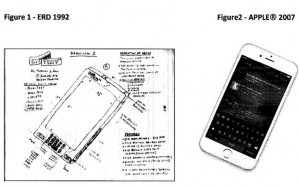Samsung v. Apple – The Tablet Wars
In the wake of Steve Jobs’ death, Apple investors and fans could use a little good news. Well, they recently received some, in the form of two rulings against Samsung. On October 18, The Sydney Morning Herald reported that a federal court in Australia had granted Apple an injunction against Samsung, preventing Samsung from selling its tablet device “Galaxy Tab 10.1” in Australia. Apple alleged that Samsung infringed on “two of its patents relating to touch screens and the gestures that control them.”
As the article points out, this suit says a lot about the two companies, especially about Apple’s perception of the Samsung device as a true competitor to its iPad. It also puts Samsung in a difficult position with the holiday shopping season — a season that retailers would like us all to believe starts on Labor Day this year. For its part, Samsung’s statement in the aftermath of the ruling makes reference to the fact that it has filed a cross claim against Apple, alleging a violation of Samsung’s wireless technology patents.
Here in the United States, Samsung is also running into IP trouble with its Galaxy tab. As reported by Reuters, after the ruling in Australia came out, “Apple then filed a request in July to bar some Samsung products from U.S. sale, including the Galaxy S 4G smartphone and the Galaxy Tab 10.1 tablet.” A U.S. District Court judge ruled that the Galaxy infringes on Apple’s patents but, interestingly, also stated that Apple is having troubles establishing the validity of those patents.
We would have loved to be at this hearing. Reuters’ article gives this little tidbit about that proceeding, which was undoubtedly not good news for Samsung’s attorney:
At one point during the hearing, she held one black glass tablet in each hand above her head, and asked Sullivan [Samsung’s lawyer] if she could identify which company produced which.
“Not at this distance your honor,” said Sullivan, who stood at a podium roughly ten feet away.
“Can any of Samsung’s lawyers tell me which one is Samsung and which one is Apple?” Koh asked. A moment later, one of the lawyers supplied the right answer.
Ouch. Not a good few days for Samsung.















